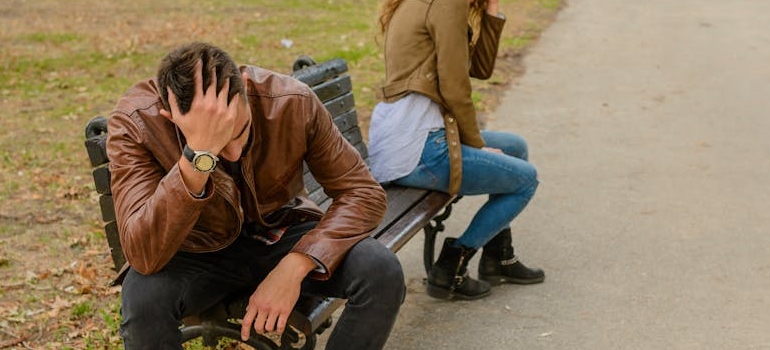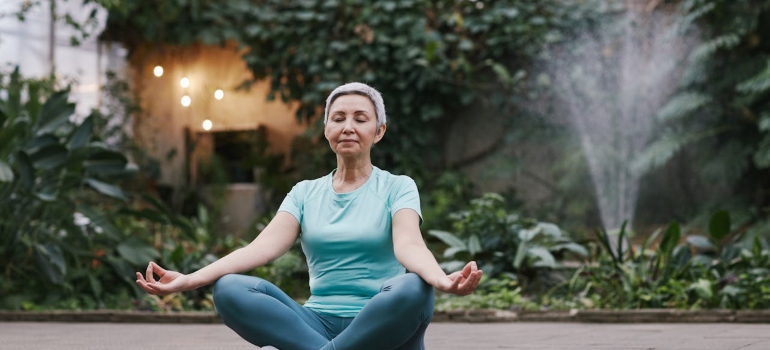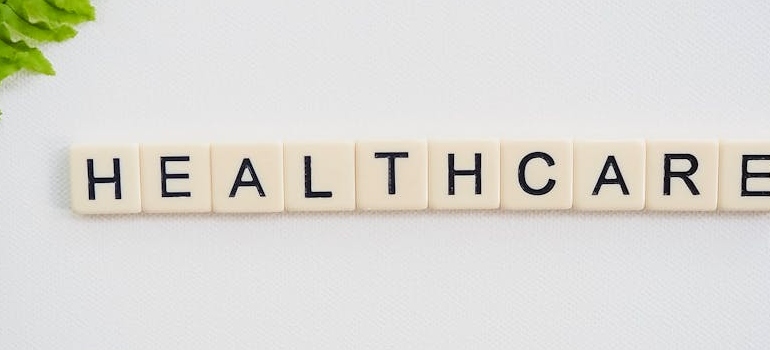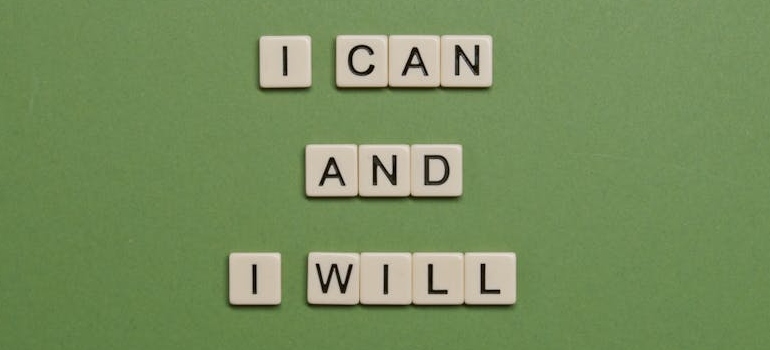Understanding how women and men approach rehab differently is crucial for providing effective and tailored support. While addiction affects individuals of all genders, research suggests that women and men often have very different experiences and needs when seeking recovery and treatment. Different biological traits and societal expectations can impact how men and women communicate with treatment centers. By exploring these gender-specific dynamics, we hope to raise consciousness about the difficulties associated with rehabilitation for addiction. In addition, some of the best drug and alcohol treatment centers in West Virginia can help individuals with the tools they need to determine the help that best matches their own needs and circumstances. Join us as we examine tactics for creating welcoming and equal treatment environments for both men and women.
The Answers To Why Women and Men Approach Rehab Differently Could Be Social Stigma and Stereotypes
Social stigma and stereotypes surrounding gender roles can have very serious effects on how women and men approach asking for help for their addiction. Women are concerned that they will be ostracized or attacked for not living up to society’s expectations of femininity and maternal responsibilities. Therefore, women may be prevented from being opened up about their struggles with addiction as a consequence of conventional gender norms. Conversely, males may encounter pressure to live by stereotypes of strength and independence. That could limit their willingness to ask for assistance. Accessing treatment can become more difficult due to these gender-specific challenges, which also contribute to the guilt associated with addiction. We may attempt to establish more welcoming and uplifting situations that motivate people of all genders to seek the medical treatment they need and make sure they apply to residential treatment centers in West Virginia.

Cultural and Familial Expectations
Cultural and familial expectations exert significant influence on women’s and men’s attitudes towards seeking help for addiction. Gender roles, family dynamics, and traditions can shape individuals’ perceptions of substance abuse and treatment-seeking behavior. The moment we seek professional care and show vulnerability, we can face a lot of prejudices in some cultures, especially when it comes to men. On the other hand, women can experience pressure to put their families’ needs ahead of their own. Putting their families first can discourage women from getting help. We may create more inclusive and culturally sensitive methods of addiction treatment by asking for help from drug rehab centers in WA . The centers take into account the different needs and experiences of men and women by comprehending and addressing these familial and cultural influences.
Psychological Factors of Why Women and Men Approach Rehab Differently
Different emotions affect women and men differently when it comes to seeking help for addiction. Emotions such as shame and guilt affect women more, while being seen as weak bothers men more. Society norms and gendered socialization play a vital role in shaping emotional expression and their seeking for substance abuse treatment WV. Men, often taught to uphold notions of strength and self-reliance, may feel even greater a sense of shame or weakness in admitting to struggles with addiction. On the opposite end of the spectrum, women might feel guilty about the expectations imposed on them by their traditional roles. Thus, as a consequence, they may put the needs of others ahead of their own and delay getting addiction treatment. By recognizing and owning these psychological elements in the context of gendered socialization, we might improve our ability to assist individuals of all genders in climbing obstacles to seeking help.

Barriers to Accessing Treatment
Both men and women might find it difficult to gain addiction treatment. This is because different challenges impact each gender differently. Thus, there are variations in treatment final results, such as:
- Financial constraints: Limited access to affordable treatment options and lack of insurance coverage can pose significant obstacles for individuals seeking help, regardless of gender.
- Childcare responsibilities: Women often bear the primary caregiving role within families, making it difficult to balance treatment needs with childcare duties. This can discourage women from seeking medication-assisted treatment in West Virginia for addiction due to the high amount of stress when it comes to childcare arrangements.
- Workplace pressures: Both men and women, but more frequently, men, may face pressures related to keeping their jobs and providing for their families. Because of that pressure, it is challenging for men to prioritize treatment over work commitments. Fear of job loss or financial instability can definitely stop men from seeking the help they need.
Specific support and assistance services that consider and take into account the different situations and requirements of both men and women seeking addiction treatment must be developed to address these gender-specific obstacles
How Perceptions of Support Networks Affect Why Women and Men Approach Rehab Differently
Perceptions of support networks vary between women and men when struggling with addiction. Women often rely on very close friends as their social support systems. That system includes friends, family, and community networks. They provide them with emotional and practical assistance. Women may prioritize seeking help from trusted individuals who offer understanding and empathy, such as rehab for seniors in case they are older. This info is based on this year’s American Addiction Centers statistical research. In contrast, men may perceive seeking support as a sign of weakness and may be less likely to turn to their social networks for help. Instead, they may feel pressure to handle addiction issues independently or may be influenced by peers who encourage avoidance of vulnerability. Additionally, societal norms around masculinity may discourage men from accessing professional resources or therapy.

Risk Factors and Protective Factors
Women may face gender-specific risk factors such as a history of trauma. History of trauma can contribute to the development of substance abuse as a coping mechanism. Additionally, mental health disorders that coexist, such as depression and anxiety, may be more prevalent among women. However, women may also benefit from strong social support networks. The benefits are including close relationships with friends and family and those serve as protective factors against addiction. Also, they encourage help-seeking behavior. Still, men may experience risk factors related to societal expectations of toxic masculinity, such as pressure to conform to traditional gender roles and stigma surrounding vulnerability. That is why it is very important that no matter the gender, when people are faced with addiction early, they need to be encouraged to apply to rehab centers for young adults. It can be crucial in preventing them from becoming addicts in the future.
Healthcare System Factors are Also the Reason Why Women and Men Approach Rehab Differently
These factors can have a great influence on women’s and men’s decisions to seek help for addiction. Maybe you think that certain biases we have in mind, such as gender stereotypes or assumptions about substance abuse are not so important. However, they can affect the quality of care individuals receive and may stop them from seeking help. Access to appropriate facilities is made even easier by the widespread availability of gender-responsive care and the affordability of treatment solutions. Whenever it comes to rehabilitation for addiction, men and women may have unique needs and preferences. It is, therefore, essential to provide gender-inclusive care that acknowledges and takes into account these variations. For example, we have a higher availability of gender-specific treatment programs and healthcare professionals who can detect and minimize biases.

Intersectionality When Different Genders Seek Help for Addiction
Intersectionality is essential in creating help-seeking behaviors and experiences in addiction treatment. That is because individuals’ identities intersect to influence their access to and utilization of services. Factors such as ethnicity, race, sexual orientation, and socioeconomic status intersect with gender. The reason is creating specific experiences and barriers to seeking help for addiction. That is how, for example, there is rehab for professionals. Women of color, for instance, might encounter increasing discrimination and stigma, which could influence their willingness to look for therapy. Similarly, an absence of care that takes into account cultural and societal beliefs could create extra obstacles for LGBTQ+ individuals. Identifying and correcting gender variations in help-seeking behaviors requires an awareness of the complexity of these interspersed identities. Implementing an interdisciplinary approach to addiction treatment involves understanding patients’ various needs and experiences. That is why we need customized approaches to improve the quality of service.
Personal Empowerment and Agency are Crucial When We Discuss Why Women and Men Approach Rehab Differently
Once you make yourself powerful enough, regardless of gender, you should be strong enough to overcome barriers to seeking help for addiction. Individual experiences that have navigated challenges and sought support represent the transformative power of empowerment in the challenging recovery journey. These narratives underline the importance of empowering women and men to advocate for their own health and well-being. Both men and women are fighting for their general well-being by choosing the best ways to access addiction treatment. We promote self-confidence and endurance by encouraging people to own what they’re worth and take ownership of their healing. Individuals feel more empowered to ask for help when they can receive it in a supportive environment. A compassionate environment is established through fostering open communication. Peer support networks and community outreach programs are two examples of empowerment efforts.

Future Directions
Future directions need to address gender differences in help-seeking behaviors. Also, improving accessibility to addiction treatment requires all kinds of different approaches. Implementing gender-responsive strategies that consider the unique needs and experiences of women and men are very important. This includes providing gender-specific treatment programs, offering diverse therapeutic modalities, and incorporating trauma-informed care into addiction services. Reducing challenges to care additionally calls for expanding the selection of accessible and culturally competent treatment options. Gender-responsive approaches should be a priority. Researchers, medical professionals, lawmakers, and community leaders should work together to create more inclusive and efficient programs that satisfy the various needs. In today’s world, there is discrimination in every aspect and that needs to change.

Exploring Why Women and Men Approach Rehab Differently- Individual Experiences
It becomes obvious that gender plays a great role in creating individuals’ experiences and attitudes toward addiction treatment. Women and men face unique challenges and obstacles in seeking help for substance abuse. Both men and women are under the influence of cultural norms, societal expectations, and personal experiences. Understanding these differences is essential for developing customized interventions that address the diverse needs of individuals seeking recovery. By adopting gender-responsive approaches to addiction treatment, we can make more inclusive and more efficient support systems. These systems can empower women and men to overcome challenges and access the care they need. Moreover, ongoing research and advocacy efforts are essential for advancing the understanding of gender disparities in help-seeking behaviors. Also, they are important for promoting policy changes to improve access to addiction treatment for all individuals.
Reference:
https://americanaddictioncenters.org/rehab-guide/elderlyhttps://www.pexels.com/photo/boy-and-girl-cutout-decals-1386336/



